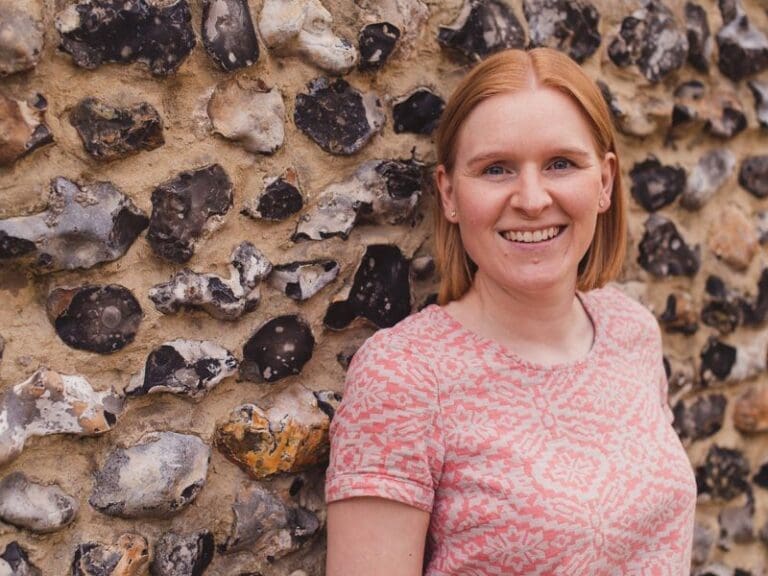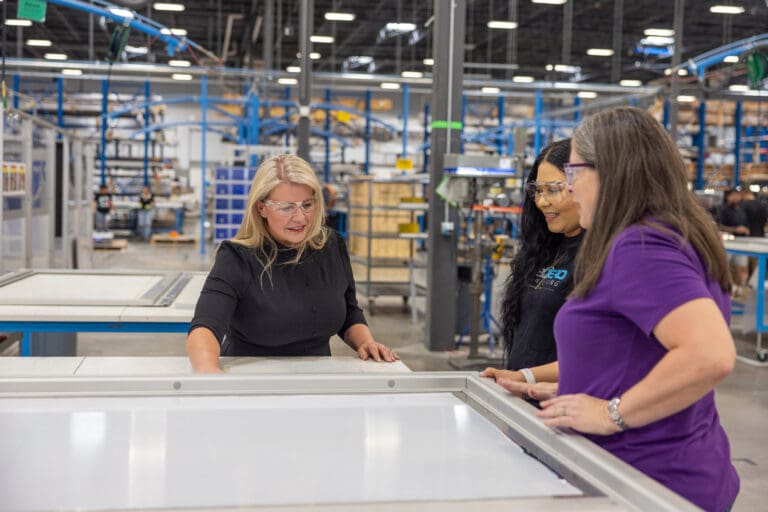This piece is truly jam-packed with actionable guidance on leadership, building skills, a career in which you thrive … and much more.
What appealed to you about joining Meta as a Solutions Engineering Manager in 2020?
 Two things excited me about joining Meta, the first being the mission of the company which is to give people the power to build community and bring the world closer together, and the second being my role in the Solutions Engineering team.
Two things excited me about joining Meta, the first being the mission of the company which is to give people the power to build community and bring the world closer together, and the second being my role in the Solutions Engineering team.
This is an advertiser facing engineering organization that operates at the intersection of engineering and business with a mission of helping all businesses thrive, using Meta’s technology and Partner Solutions. We build solutions that facilitate advertisers’ growth using the Meta family of apps and enable our business partners to realize their full potential.
Could you tell us a little bit about WISE – why it was created, your specific role and what your personal goals are?
Solutions Engineers have a uniquely technical career growth path (as opposed to a typical software engineering role) since the organization operates at the intersection of business and technology. This means it requires business understanding, an entrepreneurial mind, and engineering excellence. To help navigate this unique role, WISE’s mission is to build an inclusive community and provide resources for onboarding, career development, building community, and outreach.
My personal goal is for WISE to feel supported through every part of the journey as a Solutions Engineer: interviewing, onboarding, and growing their careers, all while feeling part of a community that they can give back to. I co-lead the Operations pillar that focuses on facilitating, curating, budgeting, and conducting outreach for initiatives across the other pillars of Growth, Career, and Community.
How do you define career success?
Career success is quite personal and can mean different things to each one of us. One way to define what career success means to you is to do the following:
- Write down a list of goals that you want to achieve for your career.
- Identify which of those are really important to you, i.e., internally driven, while separating those items that you attribute to societal and cultural expectations, i.e., externally driven. I believe focusing on internally driven goals will drive successes. When I did this exercise for myself, I was surprised that many of the goals I was focused on were really something I was doing to make my parents proud, or what was expected of me by others.
- Make a learning and development plan to achieve those goals. Share this with your manager, mentor and sponsor for feedback and accountability.
- Regularly reassess the goals and your progress – goals can change over time so keep your plan up-to-date.
- Celebrate your successes, not just when you meet a goal but especially a milestone towards a goal. We do not celebrate ourselves and our wins enough and the feeling that you are making progress will help energize you to continue to invest in your career success.
For me personally, career success means:
- Doing meaningful work that is aligned with my values and enjoying the work I do. This helps me bring my best self to work everyday
- Having ownership of the work I do
- Having opportunities to grow my skills
- Seeing my team grow and thrive
- Feeling valued in the workplace and being compensated fairly
Where do you look for career inspiration and positive role models?
I see inspiration and role models everywhere around me: in the conversations that I have in the workplace, a documentary I watched, TED Talks I listened to, or a book I read. I believe that I can learn something from every interaction and identify unique traits or qualities that I want to imbibe. I also actively tune in to the plethora of thought leaders who come and speak at Meta, and I prioritize attending annual events geared for the Women @ Meta like Women’s Leadership Day and Women in Engineering Day.
What behaviours and skills do you think make a great engineer?
Three skills that are important to me in a great engineer are:
- Competency: we live in a world where tech and innovation solutions evolve so rapidly so I am not looking for an exact match on the skills. However, I am looking for someone who has shown learning and curiosity in their career, has worked on a variety of problems, adopts new tools/technologies, and demonstrates the ability to approach ambiguous problems and solve them with a focus on longer term success.
- Execution: identify and break down solutions into executable milestones, work through blockers and mitigate project risk with a focus on timely delivery of projects is key.
- Team player: In addition to communicating effectively – building and maintaining strong relationships with those you work with is critical to accomplish common objectives and goals.
Any advice on how to approach building your career?
I am going to highlight 3 things I have found most useful when building my career
- Getting comfortable being uncomfortable: One way to do this is taking on org-level initiatives that no one else is volunteering for. Such projects are a great way to build leadership muscle, learn ways to influence, develop skills, and get comfortable with being uncomfortable. To give an example from early in my career, a product team I was working for was looking for volunteers in the engineering team to build a brand new partnership ecosystem. I volunteered for that program with the goal to build new skills. This meant I had to read up about what each partner offered, come up with a pitch on how our product could work with theirs in a complimentary manner, and collaborate with the partnership teams on how to best position our products. I remember feeling the nerves before the first call and it did not get any better for the next five or six of them. I struggled through some tough ones but always took the time to retrospect and work with sales on how we could have done better. At some point, the nerves went away and I found my footing. This experience helped not only build my confidence but also brought a lot of positive visibility for helping build a strong cross functional relationship with the partnerships team.
- Navigating organizational politics: The word “organizational politics” tends to have a negative connotation and is associated with self-interest and agenda of an individual. However, I learnt that “organizational politics”is an opportunity to actively participate in the conversation, to listen and to learn, to speak up and to influence while still being authentic and aligned to my values. Conflict in the workplace, both small and large, made me uncomfortable and I used to shy away from the situation. However, when I changed my perception and engaged actively, I was immediately seen as someone who engages, cares, is open and wants to be part of a healthy organization. A recommended read on this topic is Rocking the Boat: How Tempered Radicals Effect Change Without Making Trouble by Debra E. Meyerson.
- Do not let fear of failure hold you back: A decade ago, I wanted to pursue a part time MBA while having a full-time job at IBM and volunteering for German Shepherd Rescue as a foster. I wanted to have fulfilling experiences with all three of them but was overwhelmed at just the thought of it. The hectic choice I made to do the MBA program taught me how much more I could stretch myself and still thrive and enjoy life at a fast pace. We set boundaries of what we can and cannot do without actually trying and that can hold us back. Always ask yourself if you have tried something before assuming you cannot do it. Do not hold yourself back because you are worried that you may fail. Besides, failure will teach new lessons.








